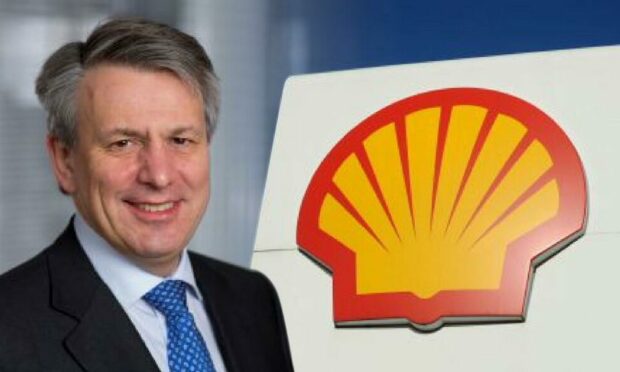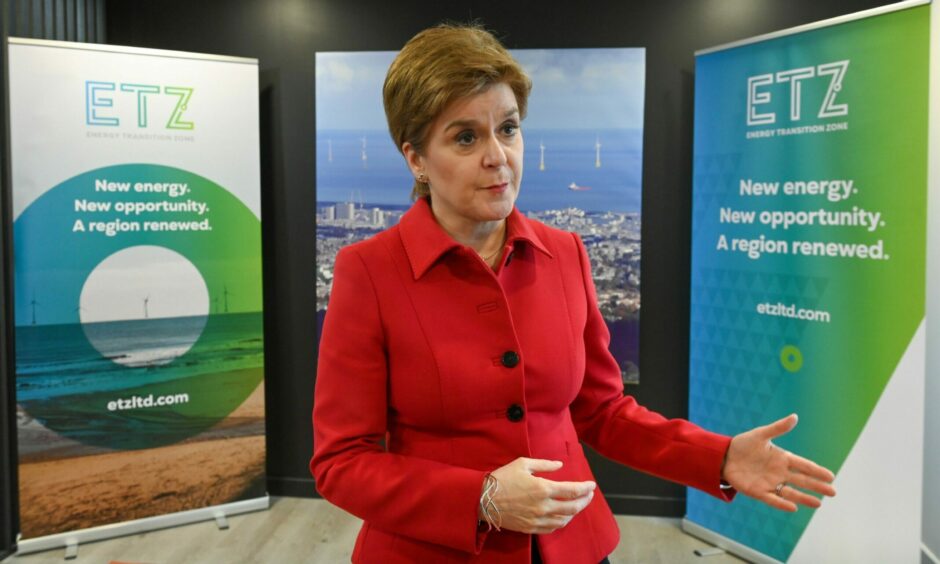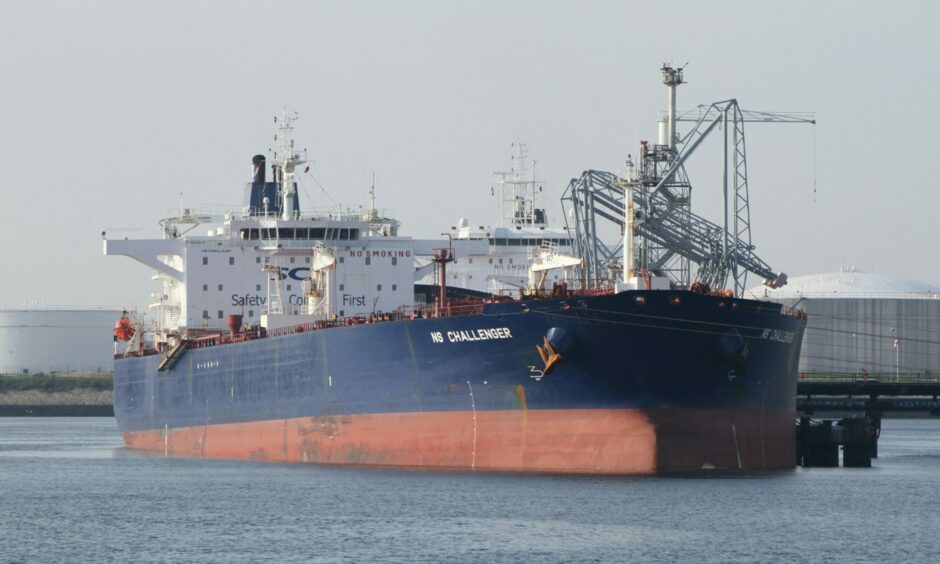Oil and gas firm Shell has become the latest company to pull out of Russia following the country’s invasion of Ukraine.
The Anglo-Dutch supermajor announced its intention to exit its joint ventures with Gazprom and related entities, which were estimated to be worth about $3 billion (£2.2bn) at the end of 2021.
The divestment includes its 10% stake in Nord Stream 2, the gas pipeline linking Russia to Germany, which it helped finance as a part of a consortium of companies.
Shell’s decision to pull out of Russia follows similar moves by both BP and Equinor as companies attempt to distance themselves from the world’s third biggest oil producer.
Western energy firms are facing increased pressure as the attack on Ukraine entered its fifth day.
In a visit to Aberdeen, First Minister Nicola Sturgeon called for oil and gas firms to pull out, saying businesses with “interests in, partnerships in or investment in Russia” should “think about getting out of that”.
She added: “We must make sure that Putin, his regime, his cronies, his network of oligarchs, are as isolated as possible.”
Shell’s announcement – made after the close of the London Stock Exchange – was welcomed by business minister Kwasi Kwarteng, who said: “Shell have made the right call to divest from Russia”.
He added: “There is now a strong moral imperative on British companies to isolate Russia.”
Earlier today I spoke to Shell's chief executive, Ben van Beurden. Shell have made the right call to divest from Russia – including Sakhalin II.
There is now a strong moral imperative on British companies to isolate Russia. This invasion must be a strategic failure for Putin.
— Kwasi Kwarteng (@KwasiKwarteng) February 28, 2022
French firm TotalEnergies is yet to confirm whether or not it will offload its 19% stake in Novatek.
Shell admitted it the decision “will impact the book value of Shell’s Russia assets and lead to impairments”.
The divestment also includes its stake in 27.5% stake in Sakhalin-2, also a flagship joint venture with state-controlled Gazprom and Russia’s first offshore gas project.
Ben van Beurden, Shell’s chief executive, said: “We are shocked by the loss of life in Ukraine, which we deplore, resulting from a senseless act of military aggression which threatens European security.”
Shell staff in Ukraine and other countries have been working together to manage the company’s response to the crisis locally.
The London-listed company has also pledged to work with aid partners and humanitarian agencies to help in the relief effort.
Mr van Beurden said: “Our decision to exit is one we take with conviction. We cannot – and we will not – stand by. Our immediate focus is the safety of our people in Ukraine and supporting our people in Russia.
“In discussion with governments around the world, we will also work through the detailed business implications, including the importance of secure energy supplies to Europe and other markets, in compliance with relevant sanctions.”
Following today’s interventions, a Russian oil tanker bound for Orkney will no longer get to dock under tough new sanctions announced by the UK government.
The NS Champion was due to dock at the island’s Flotta oil terminal on Tuesday but UK Transport Secretary Grant Shapps has now written to all British ports asking them to block Russian vessels from arriving.
This is good. I had a constructive conversation with Grant Shapps y’day evening in light of the planned docking of a Russian vessel in Orkney, and I welcome this step while legislation for longer term takes effect. https://t.co/h8huECc2Pp
— Nicola Sturgeon (@NicolaSturgeon) February 28, 2022
Repsol Sinopec Resources UK (RSRUK), which operates the Orkney facility, has now confirmed that it will no longer be using the tanker.


